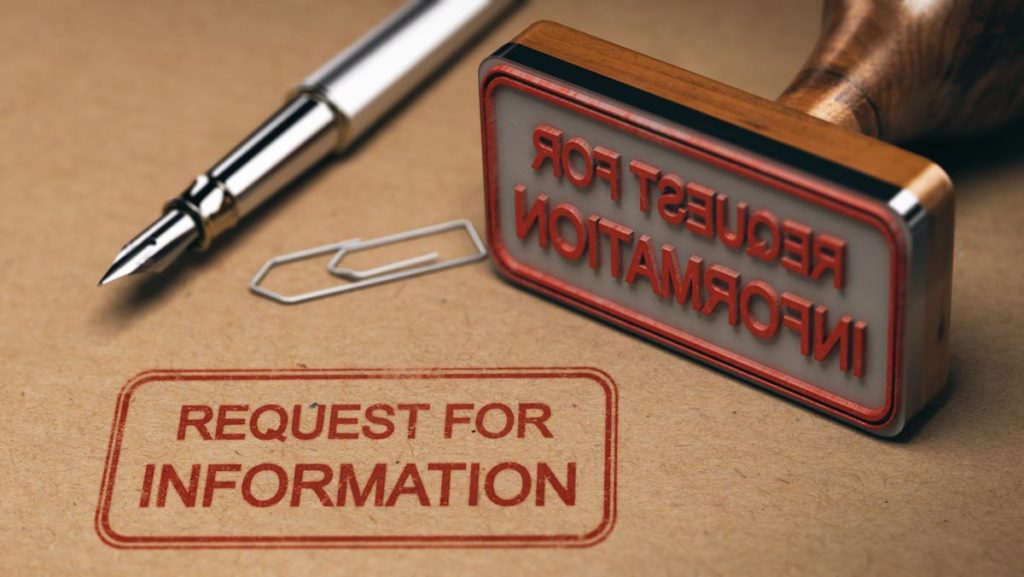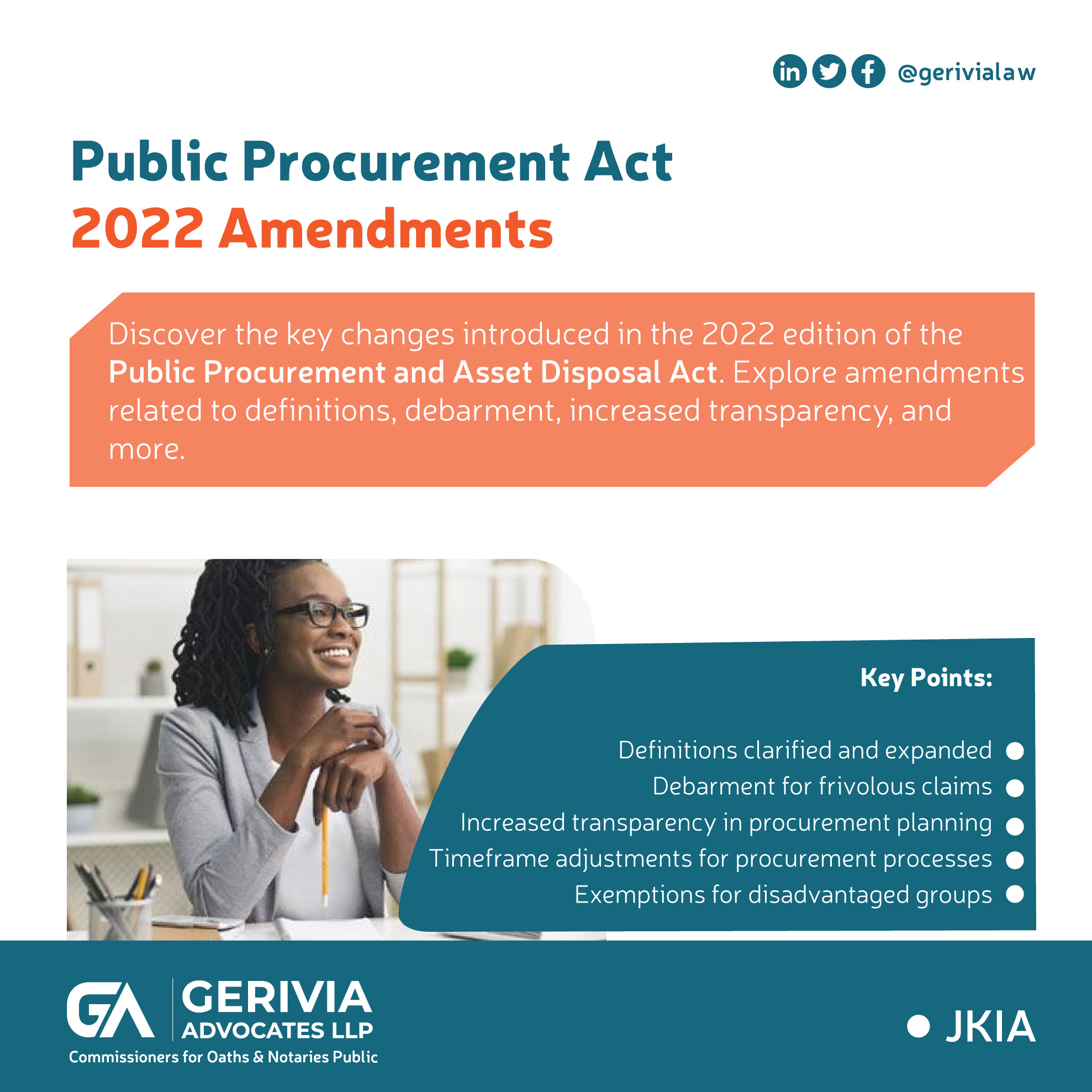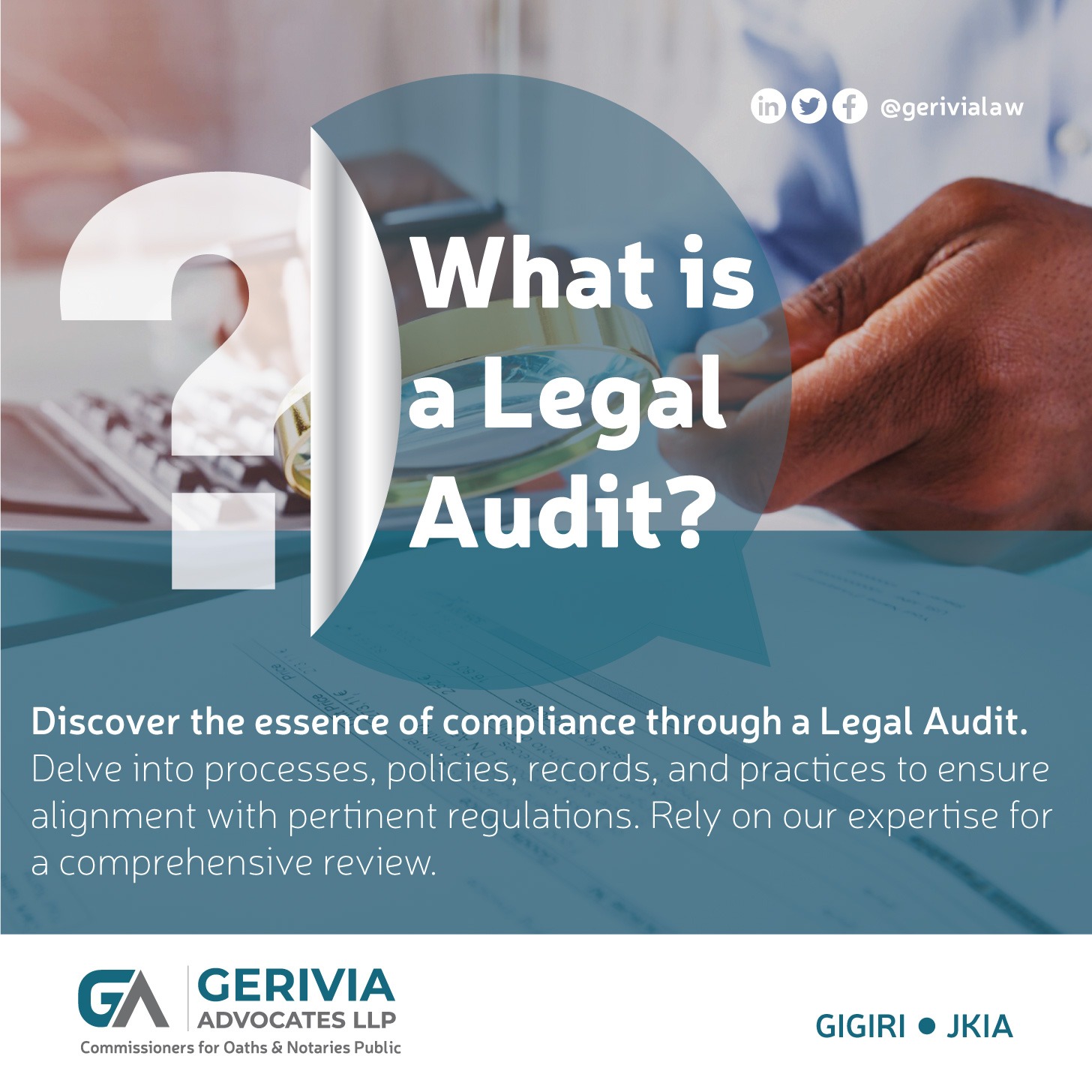Prior to preparing a bid, bidders receive a Tender Document from a Procuring Entity. For the purposes of this Article, a bid means an offer from a supplier, contractor, or service provider in response to an invitation by a public entity.
A Procuring Entity means any public entity making a procurement or asset disposal using public funds.
A Tender Document is a set of documents which may include the following: invitation to tender; instructions to tenderers/bidders, bid data sheet, general conditions of contract, special conditions of contract, schedule of requirements, technical specifications, forms which include tender security, form of tender, confidential business questionnaire, integrity declaration among others. It is important to note that Addendums issued by the Procuring Entity, form part of the Tender Document.
Any reference to the “Act” means the Public Procurement and Asset Disposal Act, 2015.
Every bidder should read and understand the Tender Document and all the requirements listed thereunder. Even if a bidder has received multiple Tender Documents in the course of the years, no bidder should assume they know the contents of a Tender Document. Admittedly, some of the requirements are constant, however, bidders should always have at the back of their minds that the Procuring Entity sets the criteria and requirements based on its procurement needs.
Procurement needs vary, so do the requirements under Tender Documents. Mechanical preparation of bids because “a bidder has done it so many times and knows everything Procuring Entities ask for” leads to rejection of bids.
Failure to read Tender Documents and mechanical preparation of bids is what leads bidders to attach a KRA Tax Compliance Certificate where a Tender Document requires a copy of the KRA PIN Certificate, yet these documents are not the same and cannot be used interchangeably.
Consolidate all the documents and information required in the Tender Document and ensure you have all the documents and information when preparing your bid. Take note of any pre-bid submission matters such as a requirement to attend a pre-bid site visit (this may be mandatory in some cases) as it will influence how your bid is prepared.
Do not overlook anything under the Tender Document. Any bidder who overlooks any requirement under the Tender Document does so at their own risk [see Republic v Public Procurement Administrative Review Board; Principles Styles Limited & another (Interested Parties) Ex Parte Accounting Officer, Kenya Water Towers Agency & another [2020] eKLR].
Where a requirement under the Tender Document lacks clarity or is ambiguous, seek clarification from the Procuring Entity, in writing (Section 64 of the Act). Keep a record of any correspondence seeking clarification. The Tender Document will contain information/procedure on how to go about seek clarification and the timelines within which to seek such clarifications.
All clarifications should be sought before you submit your bid. [See PPARB 44 of 2020, Longjian Road and Bridge Company Ltd v The Accounting Officer KENHA & China Railway Seventh Group Company Ltd].
Fill the documents with indelible ink. Serialize/paginate and initial all pages where required to do so. Take note of the specific forms provided under the Tender Document and ensure you fill, sign and stamp (if so required).
Pagination of bids is a mandatory requirement under Section 74 of the Act. Failure to paginate a bid is not a minor deviation/non-conformity [See Island Homes Developers Limited v Public Procurement Administrative Review Board; Kenya Ports Authority & 2 others (Interested Parties) [2020] eKLR].
Avoid alterations-have a first draft of the bid, revise the information provided on this draft and ensure the final draft is clean (no alterations). Where alterations are unavoidable, countersign all the alterations made. It would be difficult, without a countersign by a bidder, to establish when an alteration was made-PPCRA 2 of 2005 Hurligham Butchery Ltd vs The Department of Defence.
Provide all information required by the Procuring Entity in the Tender Document. Be mindful especially of the mandatory requirements which may include: certificate of incorporation (including any certificate of name change)/certificate of registration (foreign companies), KRA PIN certificate, tax compliance certificate (or equivalent if bidder is a foreigner), proof of registration with professional governing body, official list of directors , audited accounts (which does not have the same meaning as bank statements or financial accounts) among others-[See PPARB Application No. 147 of 2018 Toddy Civil Engineering Co. Ltd Vs. Athi Water Services Board].
Bidders should never assume that a Procuring Entity is aware of their qualifications, capabilities, capacity, and experience. Even if a bidder has been awarded a tender or tenders previously by a particular Procuring Entity, each tender the Procuring Entity advertises should be treated as a fresh invitation to submit bids that meet the tender requirements.
Evaluation of bids by Evaluation Committees is based entirely on the documents and information available to it at the time of evaluation (not on documents or information provided under a previous procurement process).
Each Procuring Entity may require different documents-read keenly. Always have at the back of the mind the kind of goods or services or works the Procuring Entity is seeking to procure- and ensure you demonstrate capacity (technical and financial) to deliver those specific goods, services or works.
When quoting prices, include and indicate all duties, taxes, and other levies. Indicate all costs i.e. quote the total price, including transport, insurance, design, maintenance etc. The tender sum as submitted and read out during tender opening shall be absolute and final and shall not be subject of any correction, adjustment, or amendment-[see Section 82 of the Act].
Quote in the currency (or currencies) acceptable to the Procuring Entity. Equally confirm the currency which will be used during payment. Check the duration of the contract-ensure to specify that the amount quoted is for duration of contract or if it is for a shorter period.
Ensure the information provided is accurate, up to date and relevant. In case of a joint venture or bidding as a consortium take note of the requirements (for example will the Procuring Entity require financial statements from all partners or just the lead partner?).
Provide proof of previous similar work delivered and references where requested. Make sure you read the Tender Document and check whether the Procuring Entity requires experience of a specific duration, for example, in the last 5 years. If this is the case, attach evidence of experience going back 5 years, since anything beyond that may be considered irrelevant.
The Procuring Entity is at liberty to contact any of your client references, therefore provide accurate and up to date information. The Procuring Entity can also carry out post qualification due diligence based on an examination of the documentary evidence of a bidder’s qualifications submitted by the bidder [Section 83 of the Act].
Ensure your bid has the right validity period. A notification of award cannot be issued where the tender validity has expired, and a contract cannot be executed where the tender validity has expired. Provide tender security if required to do so (Section 61 of the Act). Ensure the tender security is valid as per the requirements of the Tender Document.
Bind your documents to ensure some pages are not detached, hanging loosely, or out of place. Binding of documents entails the action of fastening or holding documents together. Read the Tender Document to confirm whether the Procuring Entity requires or has specified a particular form of binding of the bid such as velo/spiral/hard cover binding [See PPARB Application 79 of 2017 Kenchuan Architects Limited vs National Hospital Insurance Fund].
Submit the documents as required or stated under the Tender Document e.g. submit your bid sealed in an envelope and clearly labelled as per instructions (Section 77 (1) & (2) of the Act).
Submit your bid document before submission deadline. Keep in mind that some bids should be submitted in hard copy others in soft copy or in both hard and soft copy (Section 77 (3) of the Act).
Where possible attend the tender/bid opening or send a representative to witness the bid opening (Section 78 (4) of the Act).
Finally, retain a copy of your bid document.
Conclusion
Public procurement involves a competitive bidding process so as to achieve better value for money. This is the reason bids must comply with all the requirements of the Tender Document. Failure to submit a properly completed bid (containing all documents and information requested by a Procuring Entity), may result in no further consideration of the bid by the Procuring Entity. Price is not the only determining factor for award of tenders, the Procuring Entity awards the tender to the most advantageous bid when all factors are taken into consideration.




